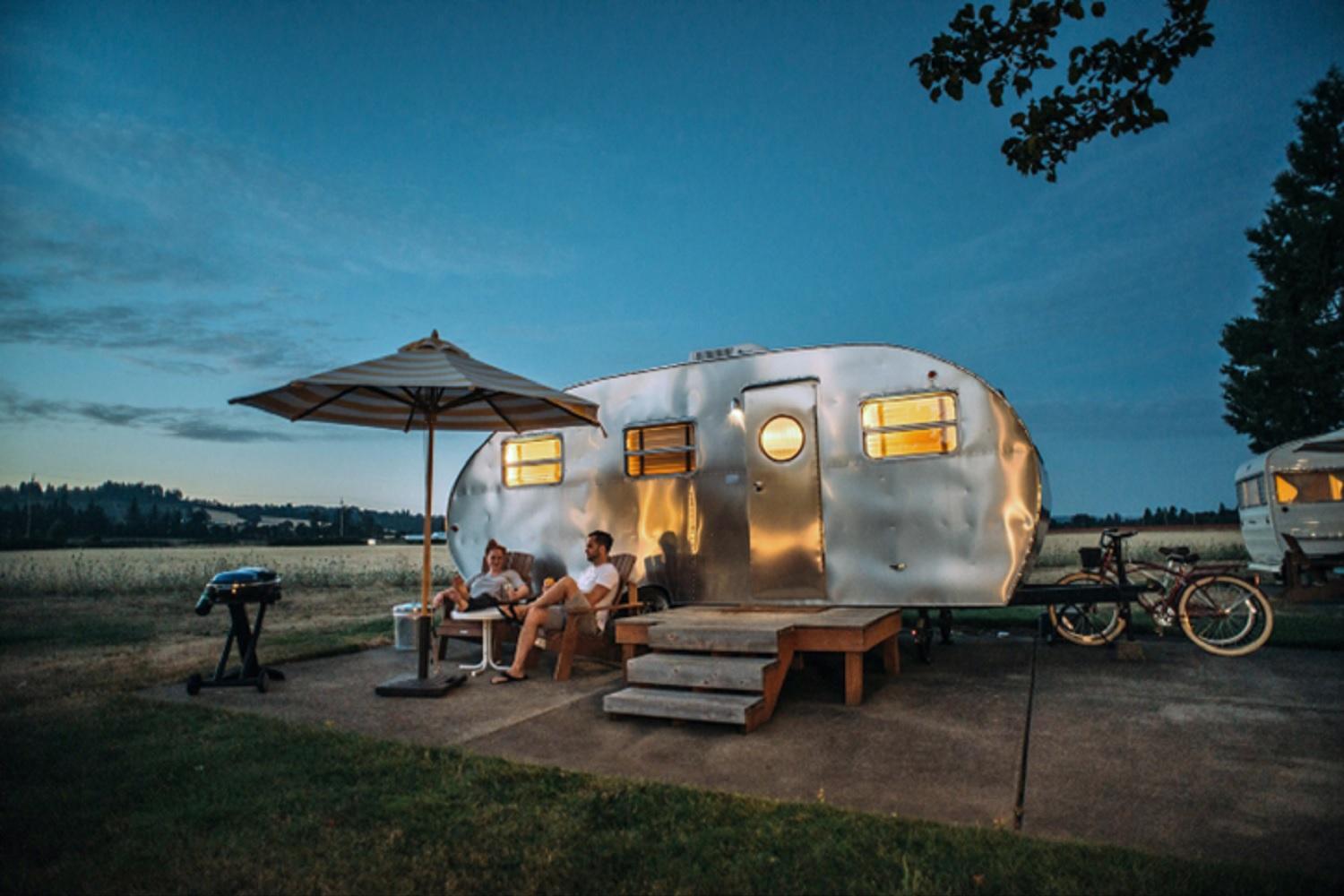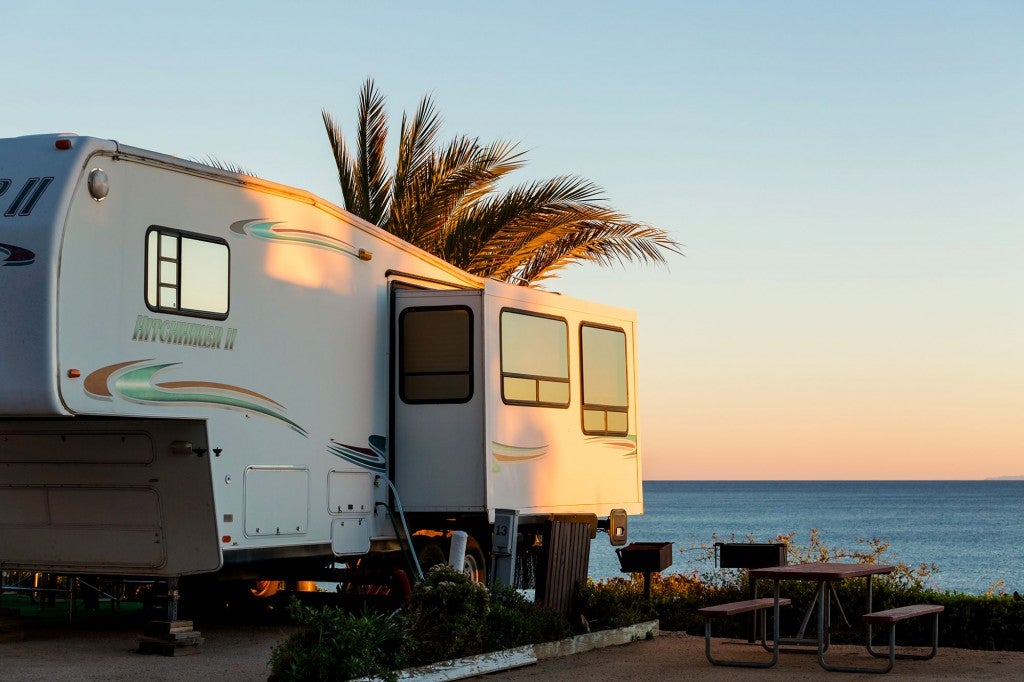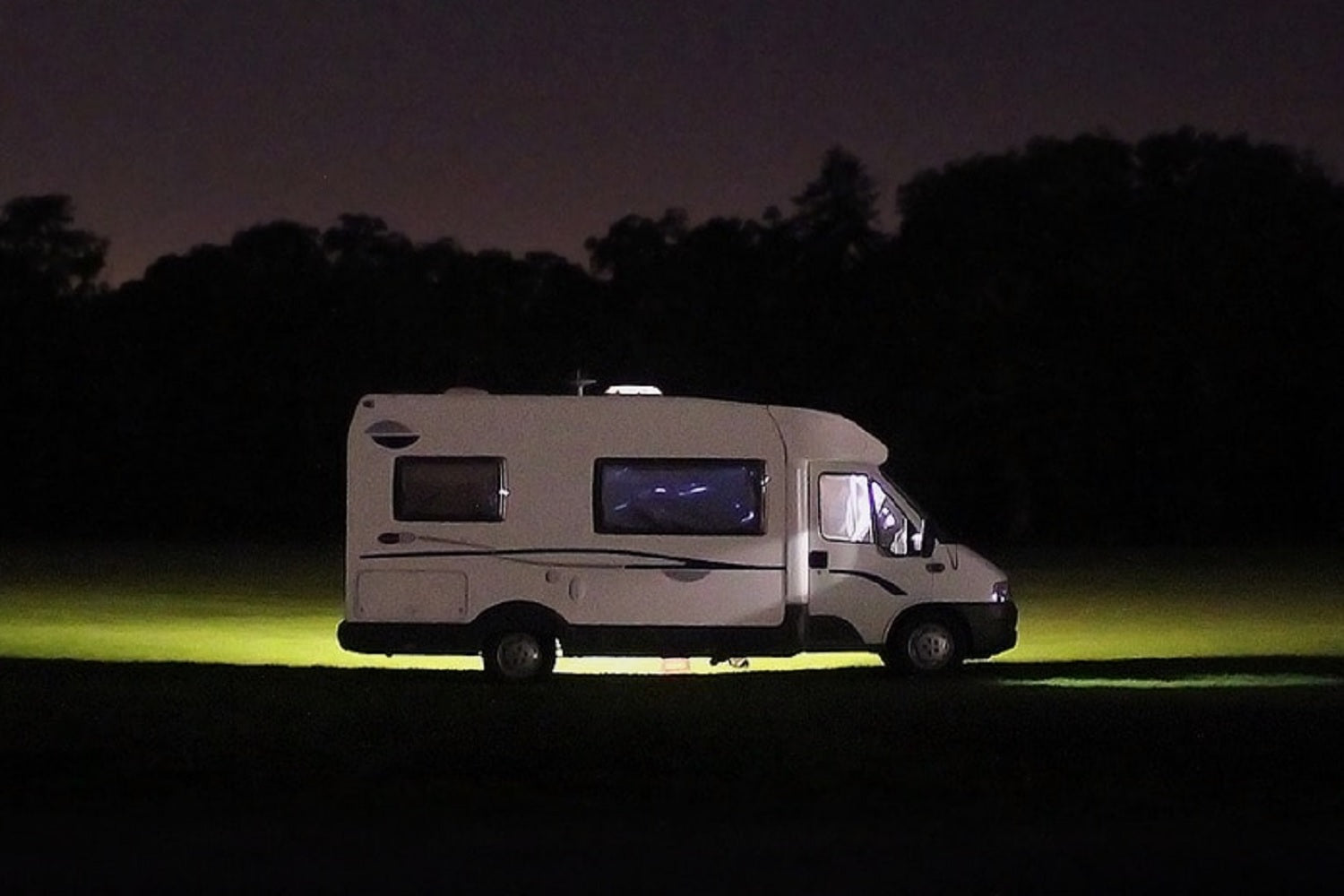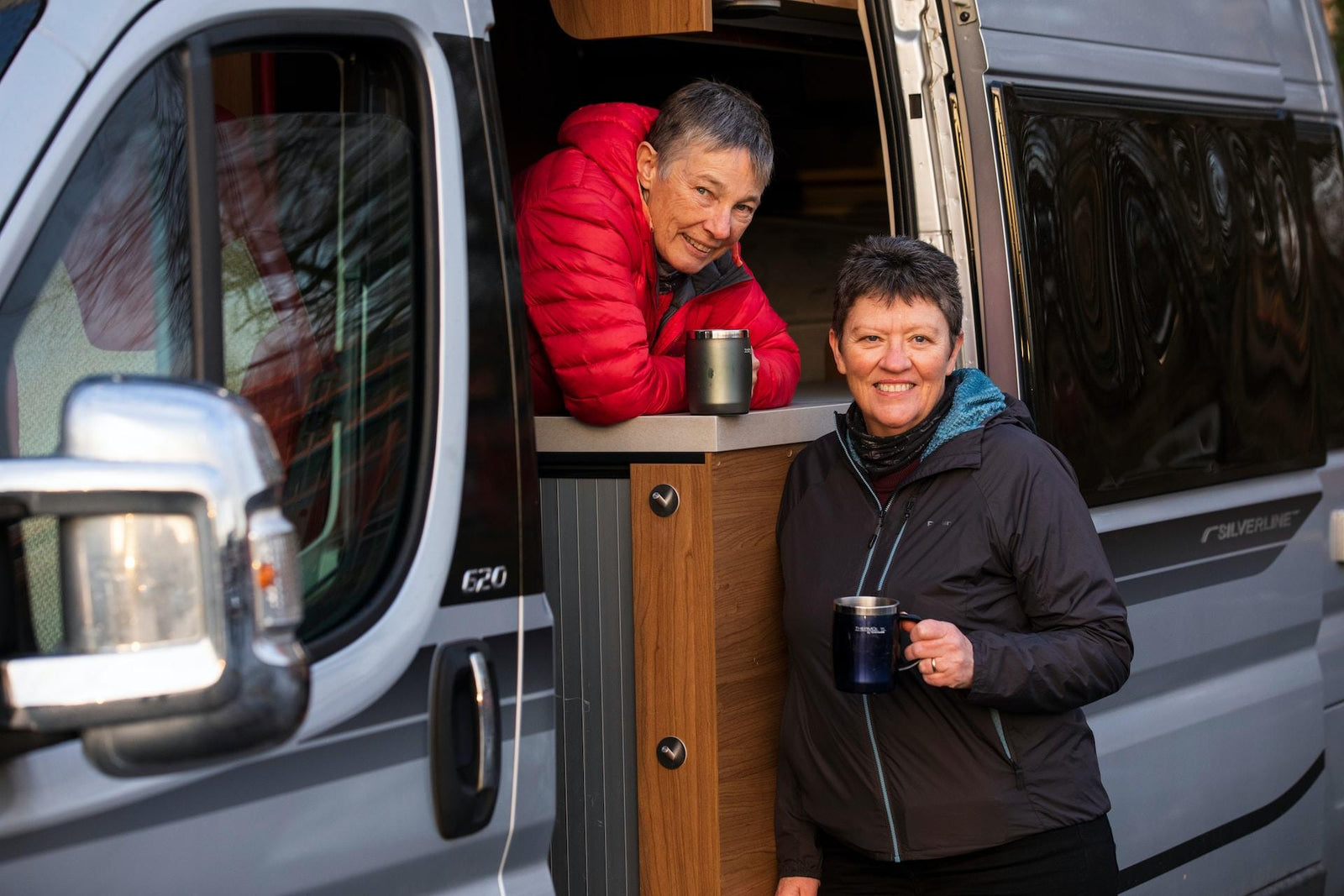
How campsites can challenge your sleep
It’s the end of another glorious day in the great outdoors and so far, everything’s been just perfect. Happily, your campsite is at the farthest edge of the RV park and setup was a breeze. A full day of activity and meeting new people has left you pleasantly relaxed. A little wine and reflective conversation have you ready for bed and sweet dreams. But wait… you’re about to discover how campsites can challenge your sleep…
Don’t get me wrong. Camping is a great respite from the challenges of daily life. Escaping the hustle and bustle of the city to spend time in the wilderness… and sleep out under the stars… helps us decompress, reassess, and recharge. The inherent conditions of camping, however, present their own challenges—for even the most experienced of campers.
Not all camping trips are the same. When they’re great, they’re great. But even when they’re not, it doesn’t have to be a disaster—knowing the challenges—and the solutions, puts you on the trail to better sleep in the great outdoors.
Campsite challenges to your sleep
Sleep challenges for campers primarily come in the forms of noise, discomfort, and anxiety. Here’s what we’ll cover in this post:
- Combating camping noises that disturb your sleep
- Keeping comfortable so you can sleep, indoors or out
- Calming your anxiety for better sleep
How noise affects our daily lives
Noise causes stress reactions in our bodies by triggering secretion of adrenaline and cortisol. This in turn leads to physical, mental, and emotional issues. Physically, stress can manifest as:
- Fatigue and Weakness
- Hypertension
- Cardiovascular Disease
- Sleep Disorders
Mentally, it increases anxiety which can turn into anger and aggressive behaviors… which then leads to communication-related problems and damaged relationships—and all too often, depression.
But you’ve escaped the city to find some peace and quiet, right?
So, where’s all the noise coming from?
Primary types of campsite noise
People-generated Noise is the biggest challenge.
Regardless of “campsite rules,” the most common noise disturbances come from noisy neighbors. Those cozy campfires we enjoy in the early evening become a nuisance when a group of neighbors keeps the conversation running into the wee hours. Music blaring from the RV camper a few spaces down, an RV rig across the park running a loud generator… unsupervised children playing with abandon… someone’s barking dog—which sets off another dog… all these noise disturbances challenge your sleep.
And let’s face it, no matter what size your camping home is—whether it’s a tent or a luxury RV motorcoach—you’re not getting any peace and quiet if your travel mate is a snorer… or wants to watch TV when all you want to do is sleep.
Among the campsite sounds that challenge sleep, are owl hoots. They are startlingly loud, and the sound travels up to 3 miles.
Adult owls make many other unsettling sounds, including barks, coos, whistles, shrieks, hisses, and wavering cries. Sometimes they can even sound like a person screaming.

Wildlife Sounds can also challenge your sleep.
When wild creatures feel the need to communicate at night, it can become quite loud—and is often irritating. In addition to the howling of coyotes, other wildlife sounds that may challenge your sleep include hooting owls (which can be heard from 0.5—to—3 miles away) … and the incessant chirping of cicadas.
For some, these noises aren’t just annoying, but provoke feelings of anxiety.
Apparently, there’s a lot of superstition surrounding owls and I must admit to finding those hoots a bit eerie myself. Probably too many horror movies. And speaking of, here’s how one Houzz writer describes the droning on of cicadas…
“They have a disturbing similarity to the violin screeching behind the shower scene in Psycho. Same pitch, same intensity, same fingernails on chalkboard scream-inducing quality.”
Not exactly a lullaby!
But not all camping-related sounds are unpleasant. Nor do all campers consider those sounds annoying.
Nature Sounds support, rather than challenge your sleep.
Nature’s sounds are known to soothe us. Sounds like babbling brooks, waterfalls, and soft winds rustling through the trees. They are similar sounds to the Pink Noise playing in our noise-masking sleep earbuds.
While nature sounds alone can’t keep you from hearing the loud neighbors or wild animals, they can help calm your nerves so you can begin to relax. To fully block out those disturbing sounds, you'll need a little a little something more...
Blocking out campsite noises that keep you awake.
There are steps you can take to limit noise exposure when you’re camping—like choosing campgrounds that offer a spacious distance between you and other campers. But even the best laid plans can go awry and when they do, campsites can challenge your sleep in a big way.
If you’re serious about ending the noise and getting a full night’s sleep, what you need is a pair of SoundOff earbuds.
SoundOff uses an active/passive noise masking process. The earbuds play a soothing pink noise that fully masks out intrusive sounds. That’s the active noise masking at work. The passive noise masking is provided by the super comfortable foam tips which expand in your ear to form a seal to prevent external noise from entering your ear canal.
With SoundOff earbuds, you’ll sleep right through any recreational vehicle or campground racket—oblivious to the rowdy neighbors, barking dogs, and squealing children. You won’t even hear your snoring spouse right next to you. SoundOff on, sleep challenging noise gone!

When the sound of snoring is too big for your tiny space, pop in a pair of SoundOff sleep earbuds. You won’t hear the snoring anymore!
Keeping comfortable so you can sleep whether indoors or out…
Just because you’re “roughing it” doesn’t mean you have to be uncomfortable—but sleeping in the great outdoors does present unique challenges to your ability to sleep well. They’re not insurmountable though so just channel your younger scout self and “always be prepared.”
Making sure you’re not uncomfortable is a sleep practice you should adhere to whether you’re sleeping in a tent, an RV, or in your bed at home.
Here are 10 tips for sleeping more comfortably when you camp…
- First and foremost, make sure you have secured sturdy shelter from the elements—be it a tent, a recreational vehicle, or a cabin.
- Invest in quality sleeping gear—a comfortable sleeping bag, air mattress or regular mattress is a must. If you’re sleeping on the ground, find a spot where it’s not too hard or lumpy—or too cold or hot. When you get to your campsite, be sure to set up your bed right away so it can have time to decompress and provide better comfort.
- Consider an inflatable camping pillow to keep your neck and head happy.
- Be as prepared as you can be to deal with weather conditions. Check the forecasts ahead of time—and take precautionary measures for unexpected rain, heavy winds, or extreme heat.
- Don’t forget to pack the necessary insect repellents or bug nets—mosquitos make poor bedfellows.
- If you’re light-sensitive or like to “sleep in” an eye mask can be a lifesaver and takes up little space in your kit.
- Make sure to use up excess energy during the day so your body’s tired enough to fall asleep at night.
- Staying hydrated during the day will also help you sleep easier at night.
- Junk food and alcoholic beverages are not sleep friendly and can create indigestion and other sleep issues. Eating sleep-promoting foods and cutting alcohol off a few hours before sleep time will help you fall asleep easier and get better quality sleep.
- Finally, before you snuggle into your sleep space, make sure to relieve your bladder.
Being even slightly dehydrated can lead to insufficient sleep. Be mindful of sipping on liquids during the day to avoid leg cramps when you're trying to get your ZZs at night.

Calming your anxiety for better sleep
Trouble sleeping is one of the most common symptoms of anxiety and your campsite’s inherent sleep challenges can easily cause anxious moments—it can become an unhealthy cycle. Here’s what you may experience:
- Inability to fall asleep quickly
- Feeling fatigued while awake
- Anxious thoughts that wake you
- Insomnia
- Ruminating on the negative
- Disturbing dreams
For most, if not all of us, sleeping in the great outdoors is vastly different from sleeping at home. Different sounds, different smells—not necessarily unpleasant but just not familiar. For many, just sleeping in a different environment creates feelings of anxiety.
You may feel uneasy sleeping so close to so many strangers, or knowing there are wild animals wandering about. Sleeping in an RV trailer may feel too claustrophobic, detoxing from your digital devices may have you on edge… Or maybe you simply cannot sleep without your favorite pillow or blanket. Bringing along a little piece of home may help ease your anxiety.
Pack Pink Noise for your next camping trip
Unlike the cicadas, our proprietary pink noise has been referred to as lullaby-esque. SoundOff users say it lulls them to sleep—and that’s backed by science. Studies have shown pink noise relaxes the brain and can help you get more “deep sleep”—and that’s going to set you up for happier days on the camping trail.
Be prepared for a greater camping experience with SoundOff earbuds. They block out all disruptive sounds—including the worrisome mind-chatter that's keeping you awake. Try them risk-free for 30 nights—You’ll love what you can’t hear!
Join us next week for more tips for better sleep under the stars!
Until then, sleep well and be well. And check out this article to make sure you have all the details for picking the best campsite.




